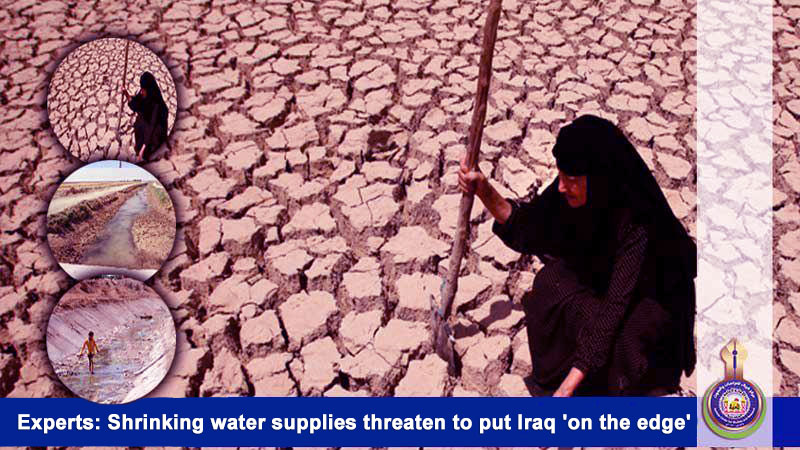As lower oil prices and a coronavirus-driven downturn batter Iraq’s economy, availability of safe water is eroding and could fuel greater tensions, security experts warned on Wednesday.
According to Reuters, hospitalizations due to worsening contamination from sewage, agricultural runoff and chemical dumping are high, especially in southern Iraq, and families now reliant on bottled water may struggle to afford it as incomes dive, they said.
The conflict-riven country has seen its water infrastructure degrade over decades both from neglect and war damage, said Tobias von Lossow, a water security expert at the Clingendael Institute, a Dutch international relations think-tank.
Construction of new dams over the decades in upstream Turkey, Syria and Iran has choked off some of the flow of the Tigris and Euphrates rivers the country depends on, he said.
Now climate change is making temperatures hotter and rainfall more erratic, adding to fears of water shortages, he added, even as the COVID-19 pandemic slows efforts to deal with the threats and saps the country’s financial resources.
Low oil prices, in particular, are “a financial existential threat for Iraq”, von Lossow said, with the country facing predictions its economy could decline 9-10% this year.
Khaled Sulaiman, an Iraqi Kurdish journalist who published a book earlier this year on water issues in Iraq, said he believed growing water shortages could further destabilize the country, which is “facing a serious crisis with water”.
Shortages are already driving many Iraqi villagers into larger cities “because there’s not any way to survive” as water supplies dry up, he added.
Some communities are battling COVID-19 and water-borne diseases at the same time, he said, even as water is wasted in inefficient irrigation projects or grabbed by the well-connected.
“All this could put Iraq on the edge,” he warned, especially with its population predicted to double by 2080.
Source:
Reuters: Laurie Goering, JULY 8, 2020

